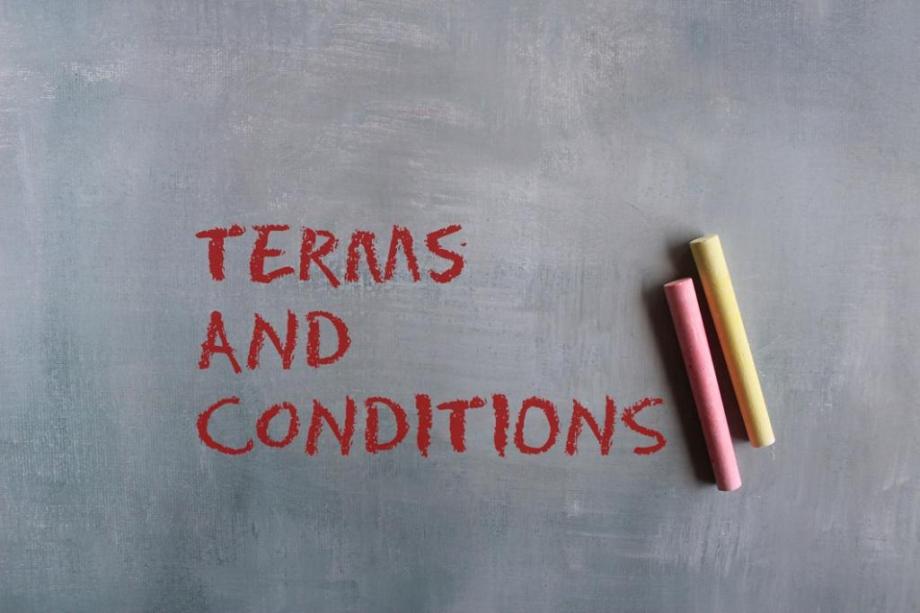It could be in place by the end of the year so now is the time to review your terms and conditions and your processes if you sell goods, services and/or digital content to consumers. Why? Because the Competition and Markets Authority is finally being given teeth, and very sharp ones at that, to deal with breaches of consumer protection law.
First, the headline grabber and key takeaway: at present the CMA doesn’t have the power to levy civil fines directly on businesses that fail to comply with consumer protection law. The proposals in the Bill give it that power and introduce fines at a scale we’ve become familiar with from data protection law. It’s proposed that the new maximum fine will be £300,000 or 10% of global turnover, whichever is higher (incidentally, if you sell to the EU, maximum fines of at least 4% of global turnover apply there – they vary country to country). There’s also provision in the Bill for fines of up to £150,000 or 5% of global turnover (again, whichever is higher) for failing to comply with an undertaking to the CMA or the Court, with additional penalties for each day of noncompliance. In fact, there’s a list of various fines which the CMA and/or the Courts can impose for noncompliance with the law and/or with the investigatory process and its outcome.
One would hope that the reality will be that the largest fines will be reserved for traders who persistently breach consumer protection law and fail to clean up their act once the CMA starts taking an interest in them but no one wants a CMA investigation hanging over them for months, disrupting their business, harming their reputation and with the risk of a fine at the end of it.
The CMA will have new administrative powers to deal with consumer protection issues, modelled on the existing structure for competition law. The Government’s stated aim of the new model will be to:
‘improve the speed and responsiveness of the CMA’s interventions, safeguarding the interests of consumers across the economy and creating a level playing field for law-abiding businesses.’
What else is in the Bill? ADR (alternative dispute resolution) schemes are to be tightened up by requiring accreditation and approval for providers offering consumer rights ADR services. The current perception is that in this area ADR is too slow, can favour businesses and that it can be difficult for a consumer to enforce a decision reached through ADR procedures. The Government says that the new accreditation and approval process will:
‘help level the playing field and drive consistency across the sector through the application of a common legal framework.‘
It will also be made easier for consumers to exit subscriptions which they no longer want. The Government estimates that consumers spend £1.6 billion per year on subscriptions they don’t want. They’re estimated to spend £573 million per year on subscriptions they’ve forgotten about (35% of all spending on unwanted subscriptions). A further £382 million of unwanted spending (23%) is the result of people finding the cancellation process too difficult and they estimate that consumers spend £602 million on subscriptions that are the direct result of accidentally being rolled over from a free or reduced-price trial. Businesses offering subscriptions to consumers will therefore have to:
a) provide to consumers (prominently and clearly presented) specific pre-contract information, including information about the price, automatic renewals and cancellation methods and rights.
b) send reminders to consumers in a prescribed form, alerting them that a free or discounted trial period is coming to an end, or that a contract is shortly due to renew, with information on how they can exit the contract if they wish to.
c) make available to consumers a process to exit the contract via a single communication (and the trader will be prohibited from imposing any steps on a consumer wishing to end their subscription which are not reasonably necessary).
d) extend consumers’ existing early cancellation rights to all subscription contracts so they will apply to an updated range of products, and regardless of the purchase channels.
e) give consumers a new cancellation right after a free or reduced price trial, and after auto-renewal if the renewal term is a year or more, so they have 14 days to cancel a subscription contract after it’s renewed.
Savings schemes like Christmas clubs are also in the firing line, with requirements to insure or hold money in trust to protect consumers’ savings. The Government’s press release gives the collapse of Farepak back in 2006 as an example of what this is designed to prevent. Over a hundred thousand consumers were affected by the Farepak scandal.
Fake reviews are still set to become a thing of the past, the Government says, but not in this Bill. Instead the Bill would give the Government the power to add to a list of banned practices under the Consumer Protection from Unfair Trading Regulations 2008:
a) creating (or offering to create) fake reviews;
b) commissioning fake reviews (or soliciting them through some other incentive, like a discount off a future purchase perhaps); and
c) hosting fake reviews (without taking reasonable and proportionate steps to check they are genuine)
This approach does seem sensible because the 2008 Regs are the best place to deal with the issue. The Bill will give the Government the power to add other matters to the list of banned practices in the 2008 Regs as and when they arise.
If you would like to make sure you’re complying with your existing obligations as a trader under consumer protection law by reviewing your terms and conditions and business practices, our Corporate and Commercial team is happy to help.



